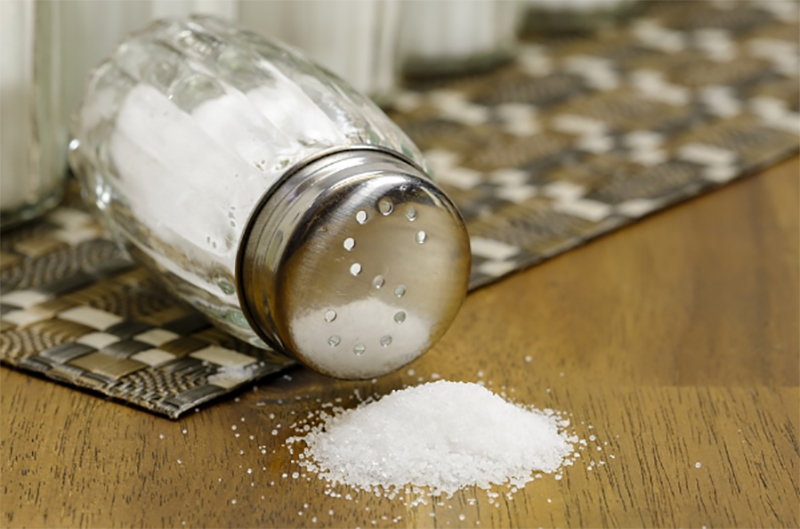 Sodium Intake
Sodium Intake
Study reveals too little sodium can be harmful to heart failure patients
Washington: For people with heart failure, restricting dietary sodium intake to levels below the standard recommended maximum of about 2.3 grams per day does not bring additional benefits and may increase the risk of death, according to findings from nine randomized controlled trials in a new meta-analysis presented at the American College of Cardiology's Annual Scientific Session Together With the World Congress of Cardiology.
Heart failure, in which the heart muscle becomes too weak or stiff to pump blood effectively, is a chronic condition affecting over 6 million adults in the U.S. Physicians recommend a low-sodium diet to reduce blood pressure and avoid common symptoms such as fluid buildup and swelling.
However, previous studies have reported mixed results regarding the optimal maximum daily sodium intake for people with heart failure.
"Our findings showed that restricting dietary sodium to less than the usual recommendation was counterproductive in the management of heart failure," said Anirudh Palicherla, MD, an internal medicine resident at Creighton University School of Medicine in Omaha, Nebraska, and the study's lead author. "This was in line with a recent randomized controlled trial suggesting that restricting sodium more than what we do now doesn't necessarily lead to better outcomes."
The U.S. Dietary Guidelines for Americans recommends that most adults limit dietary sodium intake to 2.3 grams per day or less, equivalent to about one teaspoon of table salt. The average American consumes over 3.4 grams of sodium per day.
In the study, researchers analyzed nine randomized controlled trials that assessed different levels of sodium restriction for people with heart failure and included data on rates of death and hospitalization.
Most of the studies were conducted between 2008-2022, except for one earlier study published in 1991. Together the trials enrolled nearly 3,500 heart failure patients in total.
Analyzing outcomes across all studies, researchers found that patients following a diet with a sodium intake target below 2.5 grams per day were 80% more likely to die than those following a diet with a target of 2.5 grams per day or more.
The sodium limits varied from about 1.2-1.8 grams per day in the more restrictive study arms. The analysis did not show a trend toward increased hospitalizations among patients following more restrictive diets.
"Limiting sodium is still the way to go to help manage heart failure, but the amount of restriction has been up for debate," Palicherla said. "This study shows that the focus should be on establishing a safe level of sodium consumption instead of overly restricting sodium."
The researchers said that there was significant variability in the study designs used in the clinical trials, including different participant baseline characteristics, different health care settings and different methods for tracking sodium intake and health outcomes.
Some studies required participants to restrict their fluid intake in addition to their sodium intake, while other studies did not.
However, Palicherla said that the number of studies and total number of participants gives the researchers a high level of confidence in the overall findings.
Future studies could help clarify the optimal targets for dietary sodium or identify subgroups of heart failure patients who might benefit from more or less restriction, researchers said.
To limit sodium intake, experts recommend eating more fresh fruits and vegetables and cooking with basic ingredients rather than processed, boxed and canned foods and sauces that often contain high amounts of sodium.
When eating out or buying prepared foods, ask for nutrition information or read the food labels and choose items with the lowest amounts of sodium.
Support Our Journalism
We cannot do without you.. your contribution supports unbiased journalism
IBNS is not driven by any ism- not wokeism, not racism, not skewed secularism, not hyper right-wing or left liberal ideals, nor by any hardline religious beliefs or hyper nationalism. We want to serve you good old objective news, as they are. We do not judge or preach. We let people decide for themselves. We only try to present factual and well-sourced news.







